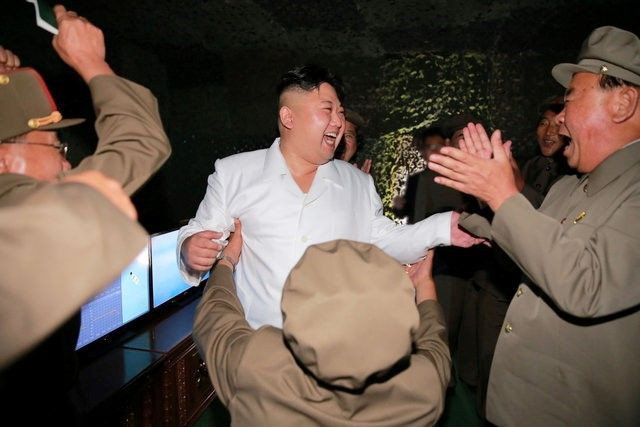North Korea Says UN Condemnation Of Missile Launch ‘Provocative’

North Korea on Saturday expressed great displeasure over the United Nations Security Council’s strong condemnation of the East Asian country’s four ballistic missile launches between July and August.
In a press statement approved by the 15 members, the council denounced the North’s ballistic missile activities as fueling tensions and called them “grave violations” of the ban on missile activity. Pyongyang’s July 9, July 18, Aug. 2 and, most recently, the Aug. 23 launch were condemned by the U.N.
However, in an interview with the Associated Press (AP) just before the council released its strongly worded statement, North Korean Foreign Ministry official Jon Min Dok called the discussions at the U.N. a “terrible provocation” and justified the country’s drive to develop a nuclear arsenal by pointing to an “outrageous nuclear intimidation” by the United States.
Wednesday’s submarine-launched ballistic missile (SLBM) was fired days after South Korea and the U.S. began military exercises. According to South Korean officials the SLBM covered the distance of about 500 kilometers (310 miles), marking the longest distance the North has achieved with this weapon. With the latest launch, all of South Korea and parts of Japan are brought under striking distance for Pyongyang.
Jon, however, said that the latest launch did not encroach upon the security concerns of the neighboring countries, and simply showed the North’s “great power and inexhaustible strength in the face of the trials of history and the challenges of our enemies.”
“The best way for the U.S. to escape a deadly strike from us is by refraining from insulting our dignity and threatening our security, by exercising prudence and self-control,” Jon told AP.
While North Korea already has a number of land-based missiles capable of striking South Korea and Japan, the submarine-launched missiles are tougher to detect before launch, making them a considerably larger threat to the security of the neighbors and U.S. military bases located in these countries.
Therefore, in the statement, the Security Council “reiterated the importance of maintaining peace and stability on the Korean peninsula and in northeast Asia at large,” AP reported.
Stressing “the importance of working to reduce tensions in the Korean peninsula and beyond,” member states expressed “their commitment to a peaceful, diplomatic and political solution to the situation.”
© Copyright IBTimes 2024. All rights reserved.






















